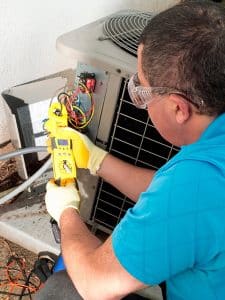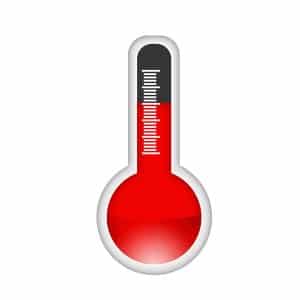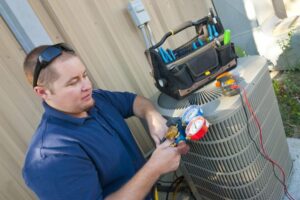Huh, you think, taking in the scene. That’s weird. I didn’t even realize my air conditioner used water. So, should I call a plumber, or an AC technician?
First things first—stop what you’re doing!
You are right to be confused. A central air conditioning system does not use water in its cooling process. It doesn’t have a water supply line. It does not store water in a tank.
So, am I just imagining I’m seeing water around the AC unit? Because I’m definitely seeing water around the AC unit.
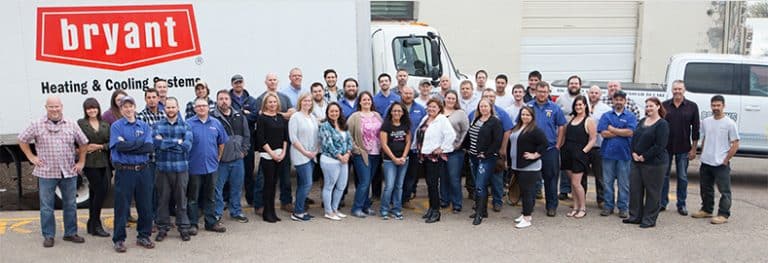
Well, no—we didn’t say that. What we are saying is that this is not exactly a water leak, at least not in the way you’re thinking of. Feeling more confused? That’s okay. Trust us, we get plenty of calls for HVAC services in Windsor, CO from homeowners in your same situation. The good news is we have answers.
First of All, What’s the Source of the Water?
If your air conditioner is not a plumbed appliance with a designated water line, then where is the water surrounding the indoor unit coming from? There are two potential answers to this question.
The first is that the water surrounding your air conditioner has just wound up there due to the AC unit being at a low point in the home. It could have come from a plumbing leak, or even from a leak in the foundation letting water in when it rains. Whatever the case, water is naturally going to follow gravity’s pull, and that means it will pool around the AC if it’s at the lowest point on the floor it is installed on.
A more likely scenario, however, is just that you’re looking at condensation. Your AC doesn’t generate cool air, remember, but instead evaporates refrigerant in order to draw heat out of the air already inside your home. As it does so, humidity is removed from the air and condensation collects on the evaporator coil. But why is that condensation winding up around the AC unit?
Condensate Drainage Issues
Your AC has a condensate drain pan and drain line, which allows for condensation to be removed from the house. If the drain pan or drain line is damaged, then leaks can develop. By adjusting the drain pan, cleaning the drain line, or replacing either component in the event of damages, you can resolve the problem.
You could also be dealing with ice melting off the evaporator coil. This could be due to a very dirty air filter restricting airflow to the point where condensation freezes on the coil. It could also be the result of a refrigerant leak, though.
If you have a refrigerant leak, failure to schedule prompt repairs could actually result in potentially irrevocable damages to your system. If your filter is not obviously dirty, but you’ve got issues with ice developing, there is no time to spare!



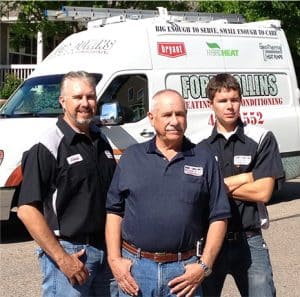 actually one of the most serious problems you can face with your air conditioning system. Not only that, but it is also one of the most common! That is a bad combination, especially when you consider that the symptoms of a refrigerant leak are not always easy to spot or accurately diagnose at first! We’re not here to alarm you, of course. Instead, we just want to make sure that you have some basic information which will help you to deal with any refrigerant leaks successfully.
actually one of the most serious problems you can face with your air conditioning system. Not only that, but it is also one of the most common! That is a bad combination, especially when you consider that the symptoms of a refrigerant leak are not always easy to spot or accurately diagnose at first! We’re not here to alarm you, of course. Instead, we just want to make sure that you have some basic information which will help you to deal with any refrigerant leaks successfully.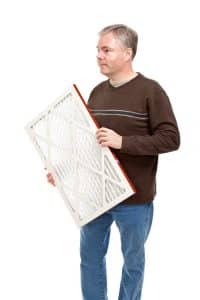
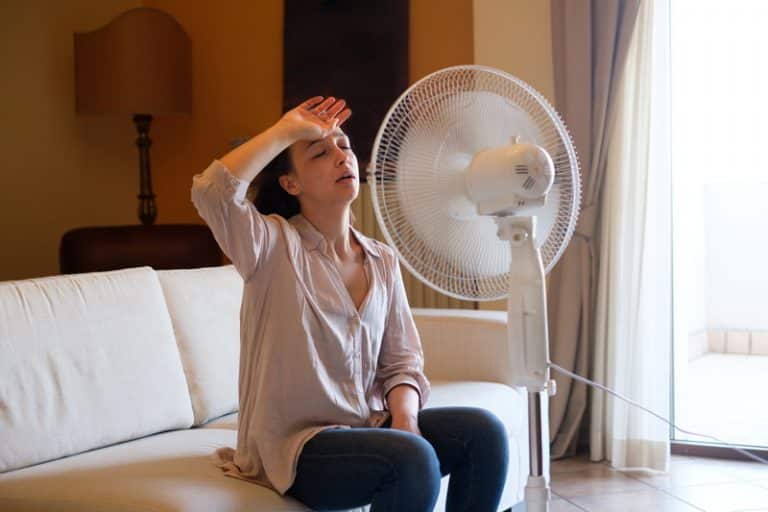 Chances are that if you are reading this blog, you are not an air conditioning expert. That’s why you come here for our expert advice, right? Well, many non-experts, meaning most homeowners, are a bit confused about when is the right time to schedule service with their
Chances are that if you are reading this blog, you are not an air conditioning expert. That’s why you come here for our expert advice, right? Well, many non-experts, meaning most homeowners, are a bit confused about when is the right time to schedule service with their 